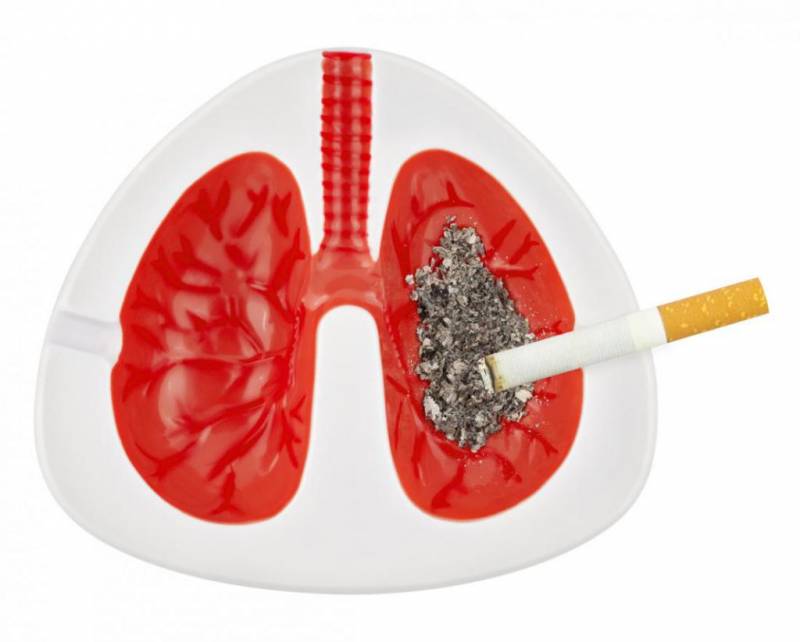In this article we will figure out why you feel sick after cigarettes.
Probably all smokers know about the negative consequences of smoking, such as heart disease, respiratory diseases, the risk of developing cancer, problems with the functioning of the reproductive system, and some of them encounter these problems much earlier than others. One of the unpleasant symptoms that smoking can lead to is nausea. What is the reason that you feel sick after cigarettes, and what can you do to eliminate this phenomenon?

How does nausea manifest after smoking?
People who smoke often experience a feeling of nausea, which sometimes leads to vomiting. Such discomfort can occur both during the smoking process and after. It may acquire some intensity when eating. This usually happens as follows:
- the person begins to feel dizzy;
- he becomes ill: headache, weakness appears;
- A smoker may feel sick after every cigarette he smokes.
Some people addicted to nicotine experience nausea when they quit smoking for more than 2-3 hours. In this case, many experience an acute attack caused by a lack of nicotine in the body.
So, why do you often feel sick after cigarettes?
Characteristic symptoms of withdrawal syndrome
It is not easy for a person to quit smoking, primarily because the smoker experiences a severe pathological condition. This is evidenced by numerous reviews from former smokers. The so-called nicotine withdrawal is manifested by typical symptoms:
- persistent desire to smoke;
- anxiety and tension;
- causeless irritation;
- shallow sleep or insomnia;
- depression;
- dizziness and headaches;
- cramps and hand tremors;
- attacks of nausea;
- weakness;
- constipation;
- tachycardia and increased blood pressure;
- shortness of breath;
- difficulty breathing;
- increased sweating;
- allergies;
- strong wet cough;
- microcracks in the mouth.
Against the background of general malaise, there is an increase in appetite and problems with concentration. Signs appear in each person with varying intensity and duration, and not all at the same time.
Causes of nausea
It is known that cigarette smoke contains a large amount of carcinogens and other products of tobacco combustion that poison all organs. The main reason for nausea from cigarettes is due to the fact that the body resists the poisons entering it.
The main factors that cause dizziness and nausea after cigarettes:

In addition, it is quite common for nausea after smoking to be caused by changing the brand of cigarettes. This is due to the fact that new cigarettes may contain more tar and nicotine, or extraneous flavorings, such as menthol.
Sometimes you feel sick after cigarettes, even if the person himself has not smoked.

Signs of the adaptation period
Nausea from cigarettes has the following symptoms:
- dizziness and headache occur at the same time;
- the attack increases during the puff;
- weakness of the body, slight tremor of the limbs.
Understanding whether cigarettes can make a person sick is important both for those who have tried it for the first time and for those who have been smoking for a long time. The main reason why the symptom appears is excess nicotine. However, a cigarette contains many dangerous substances: benzene, ammonia, arsenic, formaldehyde, lead, etc. Such exposure can lead to a person starting to vomit - especially after a long break in smoking or the first try.
More often, people complain of nausea after smoking more than 1 cigarette in a row. In addition to nicotine poisoning and toxins, the cause of this is a lack of oxygen.
Unpleasant sensations can manifest themselves with varying intensity. They occur with both active and passive smoking. In both the first and second cases, the effect on the body is approximately the same, the difference lies only in the amount of hazardous substances that have penetrated inside.
At the moment of inhalation, several thousand harmful substances penetrate into the body. The lungs and blood begin to become saturated with nicotine. The combination of these effects leads to the binding of hemoglobin and disruption of tissue respiration. The consequences of the changes are oxygen starvation, vasospasm, and disturbances in circulatory processes. Therefore, even the smell of cigarettes is accompanied by unpleasant sensations.
If we consider the reasons why one begins to feel sick after smoking cigarettes, in more detail, we can highlight:
- Impact of toxic substances and carcinogens on the root region of the tongue.
- The effect of smoke on the walls of the stomach, which tries to get rid of the penetrated substances.
- Effect on other organs. For example, the adrenal glands respond by releasing hormones that speed up the heart rate, causing nausea and general weakness.
- Long-term smoking leads to decreased immunity and the development of chronic diseases of the nasopharynx. The consequence is the proliferation of bacteria in the gastrointestinal tract, leading to the development of gastritis.
Basically, the reasons why cigarettes make you sick lie in pathological processes associated with the gastrointestinal tract. In addition to irritation of the mucous membrane, bile also refluxes into the stomach. People with nicotine addiction often develop gastritis, erosions, and ulcers. As the pathology progresses, pain will be added to the symptoms that arise.
In the first days after quitting smoking, the body tries to adapt to new operating conditions without the alkaloid. In addition to the characteristic symptoms of withdrawal syndrome, in some cases a runny nose and nasal congestion, acute respiratory diseases, sometimes severe, may develop.
Bronchitis is one of the most common pathologies that occurs at the first stage. The cause of the anomaly is the expansion of the bronchi, which, with prolonged smoking, are in a state of convulsive compression. The cells of the glandular epithelium of the bronchial tree begin to hypersecrete, freed from the oppression of nicotine.
Cough is a typical symptom of nicotine withdrawal. In fact, it indicates that the process of cleansing mucus and toxic substances has begun in the respiratory tract. At the initial stage, the cough can be very severe with sputum discharge. However, it can also signal an exacerbation of existing chronic abnormalities of the respiratory system.
Microcracks and ulcers that appear in the oral cavity after quitting smoking are the result of the action of pathogenic microflora, which begins to multiply intensively, having lost the control of cigarette poison. Immunity at this time is still significantly reduced and does not play a big role in the processes of regeneration of the mucous membranes.
What to do?
The best solution in a situation where you feel sick after smoking is to quit smoking. However, not all smokers can take such drastic measures. In this regard, there are a number of recommendations:
If you feel sick after smoking cigarettes, people often ask what to do. The best way to get rid of such unpleasant sensations is to quit the addiction forever.
How to deal with this?
So, you have decided that weakness should not overshadow your existence. What should I do for this? Ideally, quit smoking and minimize the impact of cigarette smoke on the body. This, by the way, also applies to passive smokers. And, of course, you should be examined for the absence or timely detection of serious and dangerous diseases. And for this you have to see a doctor, and in the best case, do a CT scan of the brain.
Life is short, remember this! Play sports, lead an active lifestyle, eat right, take vitamin courses, breathe fresh air more often and be healthy!
Nicotine intoxication
When smoking, there is always a certain probability of developing a nicotine overdose. Even a short period of smoking can cause chronic intoxication with this harmful substance. This is due to the fact that toxic resins and harmful compounds gradually accumulate in the body, under the negative influence of which the activity of all vital organs decreases. The most dangerous carcinogens are those contained in tobacco, which provoke cellular mutations, which result in the formation of benign and malignant neoplasms.

Why do you feel dizzy and nauseous after cigarettes?
Who is at risk
If a person has a question about why he feels dizzy after smoking, he needs to analyze the individual characteristics of the human body. The fact is that some of them may cause a person’s predisposition to such a pathology to be stronger.
People most often experience dizziness when smoking:
- drinking large amounts of drinks that have a tonic effect;
- having excess weight;
- frequently consuming alcoholic beverages;
- hypotension;
- non-compliance with the rest and work regime;
- eating an unbalanced diet;
- taking potent medications.
Quitting smoking is unlikely to be easy, since without receiving the next dose of nicotine, the human body will be in a state of stress. This addiction is not much different from others, so it is worth contacting a qualified specialist for help.
Nicotine effects
Many people feel sick after smoking cigarettes.
Nicotine belongs to the category of alkaloids of organic origin, which are present in small quantities in the roots of plants from the Solanaceae family, and accumulate in their stems and leaves. Pharmacologists and physicians know this compound as a powerful toxin that damages myocardial tissue, blood vessels and the brain. Smoking not only destroys cells and causes their mutations - numerous chronic pathologies develop under the influence of nicotine.
And that’s why after a cigarette you feel bad.
After entering the body, nicotine penetrates the blood and passes into the central nervous system within a few seconds. It overcomes all biological barriers and accumulates in internal organs, brain, and bone tissue. With each cigarette, its concentration increases, and the poisoning of the body intensifies. Under the influence of carcinogens, cells change at the genetic level, their number increases:

Nicotine also affects acetylcholine receptors, an increase in the activity of which provokes increased synthesis of the hormones of joy and stress - epinephrine and adrenaline. They enter the blood and are transferred to the central nervous system, causing in humans:
When smoking a cigarette, a person feels pleasure and sometimes even happiness, which occurs under the influence of the hormone dopamine. This is how a person develops physical and psychological nicotine addiction. He tries to experience pleasant sensations again and starts smoking. Scientists have synthesized enzyme compounds that can reduce the harm of nicotine by starting the process of its breakdown into harmless nicotinic acid. However, there are no natural such enzymes in the body.
Medication assistance
It is necessary to get rid of nausea with the help of a specialist. He will assess the general condition of the body and the presence of other symptoms.
Tablets that can help:
- Aeron. The drug affects neurotransmitters, reduces secretion production and prevents nausea. Use it 1-2 tablets per day.
- Validol. Use according to instructions - place under the tongue. Can be used up to 3 times a day, one tablet.
- Anestezin. Designed to relieve sensitivity of nerve endings. It is possible to develop individual intolerance.
Antihistamines that can be used include: Diprazine, Emetron, Dramamine. They only remove the symptom, not the root cause. Their use is advisable for nausea caused by a disorder of the vestibular apparatus.
To support the body, folk remedies can be used:
- Seasoning with ginger. The fresh root of the plant should be grated and added to prepared dishes.
- Soda solution. 1 tsp. soda is dissolved in a glass of water.
- Green tea. It is not recommended to use it in the evening to avoid insomnia.
- Mint decoction. A tablespoon of herb is poured into a glass of boiling water and infused for 2 hours. Take a tablespoon 3 times a day.
- Dill water. A teaspoon of seeds is poured into a glass of water. The product helps relieve nausea.
- Melissa decoction. Pour boiling water over 4 tablespoons of herbs and leave for 4 hours. Take half a cup several times a day.
These methods will not help reduce the harmful effects of a huge number of hazardous substances to a minimum. If you can’t quit the habit on your own, it is recommended to consult a specialist.
You can’t even imagine how many pathological processes begin in your body as soon as you light a cigarette. Nicotine, an alkaloid contained in tobacco, like a tornado, quickly penetrates tissues, organs, systems, blood vessels, and triggers numerous mechanisms in the cells of the human body.
Take a puff and smoking instantly causes weakness. One more time and you feel a buzzing in your ears and see stars before your eyes. The third - and you are on the verge of fainting... But as soon as the negative effects of nicotine stop, you are full of strength again. This means that the causes of weakness must be sought in cigarettes.
Types of cigarettes
Today in stores you can see a huge selection of cigarettes, which are classified by strength. Manufacturers, trying to make money, offer various options - ultra-light, light, menthol, strong, electronic and herbal cigarettes. Each type of cigarette has its own characteristics. Cigarettes vary in cost, brand, strength, length and width, composition, as well as nicotine and tar content.
Recently, a large number of so-called “harmless” cigarettes have been produced, which, as is known, is an advertising deception, since harmless cigarettes, in fact, do not exist. Among them are:

People start smoking, as a rule, light cigarettes, moving over time to stronger ones. In the usual brands, the concentration of nicotine no longer suits the body, which is accustomed to smoking – it becomes not enough for it. More nicotine is needed all the time.
The only difference between light and strong cigarettes is the concentration of harmful compounds contained in the composition. Taking this into account, a classification has been developed according to the strength of cigarettes (based on nicotine concentration):
So, let’s clarify once again why you feel sick after smoking cigarettes.
Harm from smoking
Health is a valuable gift, but not everyone takes care of it by smoking cigarettes. According to statistics, today more than 350 million people on the planet use nicotine. The dangers of smoking are one of the worst dangers that people expose themselves to, but few people think about it. In order to eliminate this problem, you need to really want to do it and realize how harmful it is.
This is a reasonable answer to the question - “What to do if you feel sick after smoking cigarettes?”
A lot has been said and written about the dangers of smoking, and the harm is truly enormous. After all, cigarettes contain about 3 thousand chemical compounds, and one pack of cigarettes contains 130 milligrams of nicotine, in addition to which there are other dangerous poisons, for example, arsenic, carbon monoxide, cyanide, hydrocyanic acid, benzopyrene, lead, chrysene, nitrosamines, bismuth and others. Dangerous consequences can occur immediately or after several years. People who smoke have a very weak immune system, and this means corresponding health. First of all, when smoking, the cardiovascular system suffers, colds become more frequent, and over time, the smoker can be affected by any cancer. Cigarettes have a negative effect on the gastrointestinal tract: they reduce the feeling of hunger, cause damage to the mucous membranes, which entails the development of pathologies such as gastritis, ulcers, etc.

Nausea after cigarettes: why and what to do
Recently, the media often remind people about the consequences of the harmful effects and serious danger of tobacco smoke for human health.
A healthy lifestyle is advertised, without harmful addictions. People who smoke suffer from nausea after smoking cigarettes. If you feel faint while smoking, doctors recommend giving up the bad habit. Good instructions are not heard and not applied as intended.
The respiratory system of a smoker has been affected for several years by the dangerous effects of a complex of harmful substances. Men who smoke are more likely to suffer from impotence.
Smoking has a detrimental effect on appearance, spoils complexion, skin condition, and causes unpleasant odor from the mouth. The heart and blood vessels are subjected to a severe test, the organs of the circulatory system receive the main, heavy blow.
The body of a smoker is twice as likely to develop a cancerous tumor. This is a vague, distant prospect that rarely seriously frightens smokers.
When a number of obvious symptoms appear, it is necessary to take action at the time they appear at the initial stage. A clear sign of deterioration in the body's condition due to smoking is a state of faintness from tobacco consumption.
Causes of nausea from tobacco in smokers
Tobacco smoke is a strong poison. Carcinogens, hydrogen sulfide, dozens of toxic compounds have a detrimental effect on the activity of systems, organs, tissues, and biochemical processes of the body. During the first puff, the human body recognizes the danger, tries to prevent the toxic effects, and mobilizes protective forces at the moment the cigarette smoke enters the respiratory organs.
A lot of saliva begins to be released in the mouth of a smoker from the first puff. When swallowed, carcinogenic substances are sent to the stomach along with saliva. In the stomach, toxic properties affect the smooth muscles of the inner walls of the stomach cavity. The toxic effect of dangerous compounds causes sudden movements in the stomach, leading to a spasm that causes lightheadedness.
Nausea from smoking is a consequence of a number of factors. The reasons are different; they are united by the mobile resistance of protective mechanisms to the effects of toxic substances. The feeling of nausea after smoking is caused by the intense work of the adrenal glands, the release of increased concentrations of the hormones adrenaline and dopamine into the blood. An excess of biological catalysts is the cause of signs of poor health:
- Dizziness.
- Increased blood pressure, the cause is a sharp narrowing of cerebral vessels.
- Headache.
- A sharp deterioration in health.
- Severe nausea after cigarettes.
- Severe pain in the intestines caused by the effect of nicotine on peristaltic work, significantly increasing the amount and power of smooth muscle pulsation.
Heavy smokers periodically develop oral diseases, stomatitis, and increased caries. Microorganisms accumulate in large quantities on the gums and move with saliva into the digestive organs, causing diseases. Smokers suffer from gastritis and heartburn, which can lead to stomach ulcers. If left untreated, the disease becomes chronic and causes attacks of nausea and vomiting.
A prolonged headache that occurs in long-term smokers is sometimes a symptom of the onset of cancer. When nausea and vomiting are observed, this is a sign of weakening of the body from the effects of nicotine. If you have noticeable weakness, you should consult a doctor immediately.
The smoker does not understand what causes the nausea and continues to smoke more than twenty cigarettes per day. Without realizing that the body’s defenses are trying to protect it.
Nausea from tobacco smoke
But not only direct smoking of cigarettes can provoke nausea. Dullness is recorded from passive smoking. A suspension of volatile toxic compounds that make up tobacco smoke is released into the air in high concentrations. Non-smoking people around the smoker receive a substantial portion of harmful substances by inhaling tobacco smoke.
Due to the increased concentration of carcinogens in tobacco smoke, when it enters the human body, it is subject to severe intoxication. At least four thousand dangerous compounds penetrate inside. There are people who cannot stand the smell of tobacco.
When they smell tobacco smoke, they begin to feel faint.
People's sensitivity varies, the strength of unpleasant sensations varies, but those who do not feel signs of nausea when breathing smoky air are no less at risk of poisoning than others.
Some people categorically cannot stand the proximity of tobacco smoke - they suffer from allergies and feel sick from the smell of tobacco. People develop a fever, cough, and severe headache. The immune system tries to prevent the body from being poisoned by incoming poisons.
What will help relieve nausea suddenly caused by smoking?
If you experience nausea from cigarettes or passive smoking, you should immediately stop smoking and ventilate the room. A person who has a long-standing addiction to tobacco is often unable to do this due to strong addiction.
Nicotine-dependent people experience nicotine syndrome, which is something similar to a hangover in alcoholics or withdrawal symptoms in drug addicts.
In cases of poor health, certain measures should be taken to get rid of the serious condition.
What should you do to get rid of nausea?
- Hot, strong tea with a slice of lemon or squeezed lemon juice brings relief. Tea with lemon as a bite will help. This measure will reduce the impact of nicotine, which provokes the urge to vomit.
- Eating hearty foods reduces heavy feelings.
- Using sucking candy.
A method that is good for relieving nausea caused by smoking or inhaling tobacco smoke. Sucking movements, being an unconditioned reflex, affect the central nervous system more strongly than the gag reflex. Therefore, such a reaction occurs in the body when sucking candy and nausea quickly goes away. - A hot bath or warm shower will have a beneficial effect. After taking them, you should lie down.
We must not forget that after taking measures it is unacceptable to smoke for at least 2-3 hours. Otherwise, the symptoms, specifically nausea, may recur.
Occasionally, using lighter varieties of tobacco compared to the usual ones helps. But it's not worth it at all. The number of cigarettes smoked increases significantly, reaching four packs per day. The portion of nicotine obtained when smoking lighter varieties of tobacco does not decrease at all, and the body continues to receive toxic substances. And the nausea returns again after two or three days.
The reason for addiction to tobacco, despite serious harm, even with the manifestation of severe and painful unpleasant symptoms, is that nicotine has such an effect on the nervous system, specifically on the brain. This stimulates the arousal center, causing a false sense of euphoria. The immunity of all smokers, without exception, is reduced by half.
Why does hookah make you sick?
Hookah is another way of smoking, as ordinary people think, causing less harm to health than traditional cigarette smoking. Hookah manufacturers are especially trying to convince consumers of this. When advertising a hookah, entrepreneurs often claim that the device is equipped with special devices.
And thanks to the presence of winding tubes inside the vessel through which the smoke passes, it is eighty percent cleared of carcinogens, which then do not settle in the lungs.
And provided that hygienic requirements are observed: change and disinfect the mouthpiece, periodically clean and treat the inner surface of the device with special substances for disinfection, using a hookah will not cause any harm to your health. But in reality - alas and ah!
Smoking a hookah is no less harmful to health! Dissolving in water, harmful compounds with tiny particles of liquid in the form of steam when smoking a hookah enter the lungs and penetrate into the inner layers of the lung tissue.
Hookah smoke contains carbon monoxide, the concentration of which is ten times higher than in the smoke of ordinary tobacco. This is a very dangerous substance and becomes the main cause of hookah poisoning. With the smoke from a hookah, a hydrocarbon poison, benzopropylene, enters the body.
That’s why symptoms of poisoning sometimes appear after hookah.
If symptoms of poisoning appear during hookah smoking or two to three minutes after: nausea, weakness, dizziness, tachycardia, smoking should be stopped immediately! The victim requires free access to fresh air. And immediately call a team of doctors to provide the person with immediate medical assistance. Trying to get rid of nausea on your own is dangerous!
To summarize, I would like to say: there is no harmless smoking and there cannot be! And the deceptive pleasure received from it is not at all worth such serious health problems.
Source: https://GastroTract.ru/simptom/toshnit/posle-sigaret.html
Potential for infertility
Smoking has a particularly bad effect on the female body. Nicotine disrupts reproductive functions and reduces the chances of having a child. Accordingly, the likelihood of developing infertility is directly proportional to the length of service of a young smoker. Cigarettes contain dangerous toxins that negatively affect the activity of eggs. Spermatozoa cannot fertilize them. Toxins also disrupt the patency of the fallopian tubes, which means that the fertilized egg cannot pass into the uterine cavity and begins to deteriorate. A more dangerous complication of this is an ectopic pregnancy, which requires surgical intervention, and this is fraught with infertility.
We looked at why you feel sick after cigarettes.










